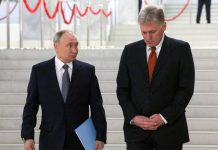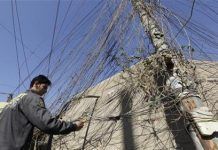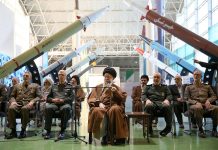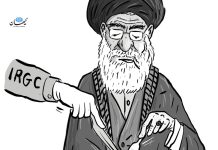By Maayan Lubell and Nidal al-Mughrabi
JERUSALEM/CAIRO, Dec 12 (Reuters) – Israelis and Palestinians are signaling new efforts to forge a ceasefire deal, even a limited one, for the first time in a year that would pause the fighting in Gaza and return to Israel some of the hostages still held in the Palestinian enclave.
Israel Defence Minister Israel Katz told his U.S. counterpart Lloyd Austin in a phone call on Wednesday there was now a chance for a new deal that would allow the return of all the hostages, including U.S. citizens, Katz’s office said.
A Western diplomat in the region, however, said a deal was taking shape, but it would likely be limited in scope, involving the release of only a handful of hostages and a short pause in hostilities.
Such a truce and release would be only the second since the start of the war in October 2023.
The guarded optimism emerges as U.S. President Joe Biden’s national security adviser Jake Sullivan heads to Israel for talks with Prime Minister Benjamin Netanyahu on Thursday and then to Egypt and Qatar, co-mediators with the U.S. on a deal.
Separately, President-elect Donald Trump has demanded that militants of the Palestinian Hamas group release the hostages held in Gaza before he takes over from Biden on Jan. 20. Otherwise, Trump has said, there will be “hell to pay.”
Biden Pushes New Russia, Iran, Korea, China Effort Before Trump Term
Trump’s designated hostage envoy Adam Boehler has said he too is involved, having spoken already to Biden and to Netanyahu. Israel says 100 hostages remain captive in Gaza. Seven are believed to be U.S. citizens.
Citing Trump’s threat of “hell to pay,” Boehler told Israel’s Channel 13 news last week: “I would appeal to those people that have taken hostages: Make your best deal now. Make it now because every day that passes, it is going to get harder and harder and more Hamas lives will be lost.”
Although Biden and Trump are working separately, their efforts overlap and both stand to gain from a deal. A U.S. official said Trump’s public statements about the need for a swift ceasefire “have not been harmful.”
The official said the priority is to get the hostages home, whether it is at the end of the Biden term or the start of the Trump term.
Steve Witkoff, Trump’s designated Middle East envoy, met separately in late November with Netanyahu and Qatar’s Prime Minister Sheikh Mohammed bin Abdulrahman Al Thani, said a source briefed on the talks.
Refugees Return to Syria as Caretaker Prime Minister Appointed
TIMING IS APT FOR NETANYAHU
The timing for a deal may never have been better politically for Netanyahu.
The prime minister told reporters on Monday that Hamas’ increasing isolation following the collapse of Syrian President Bashar al-Assad’s rule opened the door to a possible hostage deal even if it was too early to claim success.
Israel’s military chief and the head of the Shin Bet internal security service were in Cairo on Tuesday to discuss post-war Gaza border crossings and administration, according to three Israeli security sources.
The public optimism of Israeli leaders over the past week has matched the general tone in internal discussions behind closed doors, according to an Israeli official.
For Netanyahu, concessions would be far easier now with Israel having reestablished its reputation as the most powerful Middle East force and its Iran-backed enemies in Gaza, Lebanon and Syria now posing less of a threat.
Netanyahu’s once-fragile coalition has been strengthened by the addition of Foreign Minister Gideon Saar and his more centrist faction. Netanyahu, having achieved a ceasefire with Hezbollah in Lebanon, can complete the picture with the return of the hostages in a deal with Hamas.
Over the past year, some of the far-right ministers in his cabinet had voiced objections, even threatening to bring down the government, should the war in Gaza end. But with Israel’s enemies weakened, and his coalition strengthened, Netanyahu is far less vulnerable politically.
Saar said on Monday that Israel was now more optimistic about a possible hostage deal amid reports Hamas had asked other Gaza factions to help it compile a list of Israeli and foreign hostages in their custody, whether dead or alive.
A Palestinian official close to the talks and familiar with the positions of all the parties involved described what he called “a fever of negotiations” with ideas emerging on all sides, including among mediators in Egypt and Qatar.
Trump’s involvement had given the talks a boost, even if the sides have yet to present lists of Palestinian prisoners and hostages to be exchanged or to complete plans for a temporary or phased truce, the Palestinian official said.
He said Hamas was willing to show some flexibility should there be guarantees Israel would not resume the fighting.
It is unclear how the sides can bridge the largest gap that has persisted through numerous rounds of failed negotiations; Hamas demands an end to the war, while Israel says the war will not end before Hamas no longer rules Gaza.
U.S. Secretary of State Antony Blinken headed to Jordan and Turkey on Wednesday for talks on Syria, the State Department said. Israel is not in his official itinerary but there is always a possibility he might add the stop.













